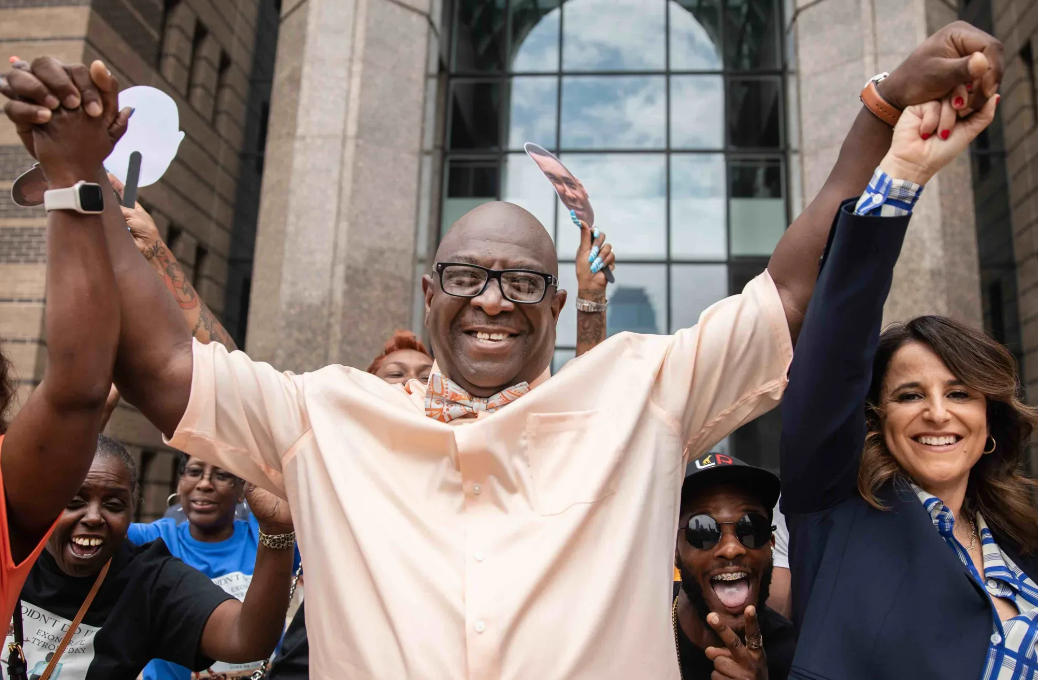Longtime Client of Innocence Project Exonerated After 26 Years
Despite his innocence, Tyrone Day pleaded guilty, fearing a 99-year sentence

Today, when Tyrone Day tells you he is an innocent man, he knows that the law and the Dallas Country district attorney will vouch for him and stand by his side.
In late 1989, an 18-year-old woman reported a sexual assault near a park in South Dallas. She said she had been attacked by three men. As police were interviewing her, she pointed to a Black man walking nearby wearing a white hat. On that occasion, Day wore a similar hat as one of the woman's assailants. That single witness' testimony led to Day's arrest and a threat of a criminal trial where he would face 99 years to life if convicted.
Day was poor and couldn't afford an attorney. When faced with that potential 99 year prison term, he accepted a plea deal of 40 years, with a suggestion from his legal counsel that he might be able to get out of prison on parole in just four years. Instead, he remained in prison, fighting his conviction for nearly 26 years. Upon finishing his sentence and serving parole for another 8 years, Day was required to register as a sexual offender.
Finally, at an exoneration hearing on Wednesday May 24 in a Dallas County Criminal courtroom, his name was finally, and legally, cleared. Extensive re-investigation by the Dallas County District Attorney's Office Conviction Integrity Unit (CIU) and DNA testing concluded that Day is "actually innocent."
Day's case was pursued by the CIU, in collaboration with Day's attorneys at the Innocence Project. There was DNA evidence in his case and they agreed to extensive DNA testing as part of the re-investigation with technology that was not available in 1990. It excluded Day as a genetic contributor to the evidence collected at the time, and it implicated two separate unnamed assailants.
In the time he's been out of prison, Day founded a non-profit; Restorative Farms in South Dallas, which helps people from poor backgrounds just like his and fighting food insecurity and poverty and the same time.
The Innocence Project says that eyewitness misidentification has contributed to approximately 63% of the 243 wrongful convictions the organization has helped overturn, and factors that contribute to it include challenges associated with cross-racial identification.
To read more about the Innocence Project's work toward Tyrone Day's exoneration, read the feature "Tyrone Day Exonerated in Dallas, 33 Years After Wrongful Conviction" at the Innocence Project's website.










